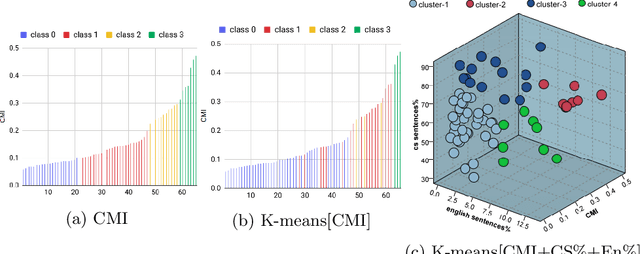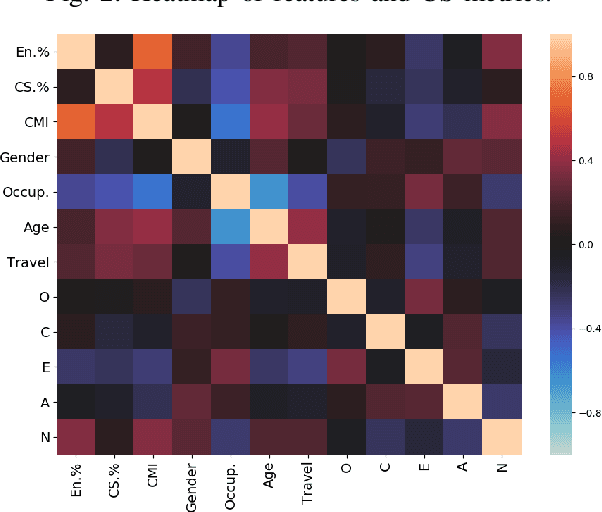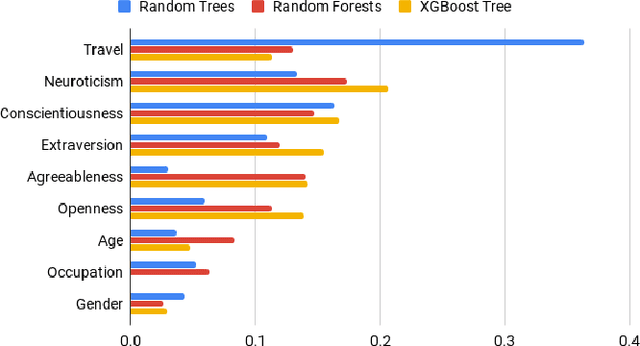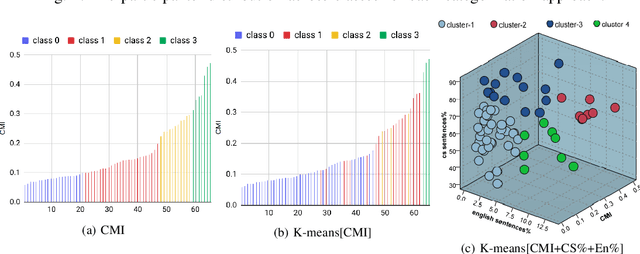Alia El Bolock
The Who in Code-Switching: A Case Study for Predicting Egyptian Arabic-English Code-Switching Levels based on Character Profiles
Jul 31, 2022



Abstract:Code-switching (CS) is a common linguistic phenomenon exhibited by multilingual individuals, where they tend to alternate between languages within one single conversation. CS is a complex phenomenon that not only encompasses linguistic challenges, but also contains a great deal of complexity in terms of its dynamic behaviour across speakers. Given that the factors giving rise to CS vary from one country to the other, as well as from one person to the other, CS is found to be a speaker-dependant behaviour, where the frequency by which the foreign language is embedded differs across speakers. While several researchers have looked into predicting CS behaviour from a linguistic point of view, research is still lacking in the task of predicting user CS behaviour from sociological and psychological perspectives. We provide an empirical user study, where we investigate the correlations between users' CS levels and character traits. We conduct interviews with bilinguals and gather information on their profiles, including their demographics, personality traits, and traveling experiences. We then use machine learning (ML) to predict users' CS levels based on their profiles, where we identify the main influential factors in the modeling process. We experiment with both classification as well as regression tasks. Our results show that the CS behaviour is affected by the relation between speakers, travel experiences as well as Neuroticism and Extraversion personality traits.
Predicting User Code-Switching Level from Sociological and Psychological Profiles
Dec 13, 2021



Abstract:Multilingual speakers tend to alternate between languages within a conversation, a phenomenon referred to as "code-switching" (CS). CS is a complex phenomenon that not only encompasses linguistic challenges, but also contains a great deal of complexity in terms of its dynamic behaviour across speakers. This dynamic behaviour has been studied by sociologists and psychologists, identifying factors affecting CS. In this paper, we provide an empirical user study on Arabic-English CS, where we show the correlation between users' CS frequency and character traits. We use machine learning (ML) to validate the findings, informing and confirming existing theories. The predictive models were able to predict users' CS frequency with an accuracy higher than 55%, where travel experiences and personality traits played the biggest role in the modeling process.
 Add to Chrome
Add to Chrome Add to Firefox
Add to Firefox Add to Edge
Add to Edge